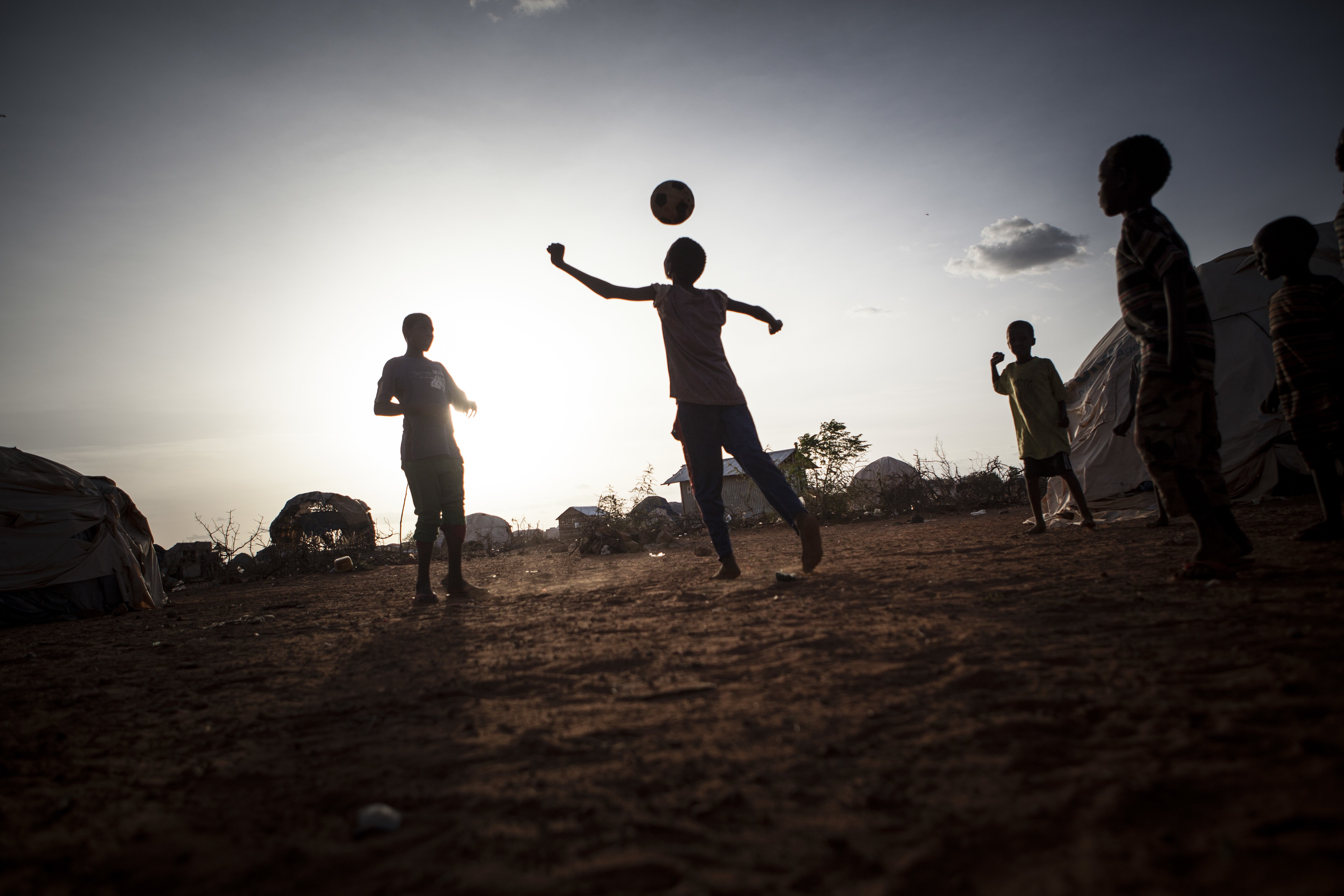Football’s Role in Addressing the Refugee Crisis

Share this step
According to the UNHCR, there are now almost 60 million refugees seeking shelter and safety across the world. Many of these refugees are fleeing war and persecution in the Middle East, North Africa and the Horn of Africa.
Football resources and popular support within society holds a potentially unique position to foster positive action on the issue.
Football’s role in the wider humanitarian effort
In 2015, as the effects of the refugee crisis reached Southern and Eastern Europe – subsequently attracting the attention of Europe’s media – many commentators noted the unified voice of the football community calling for the recognition of these events as an ongoing humanitarian crisis.
In May 2015, 2,000 Rohingya refugees were rescued off the coast of Sumatra, Indonesia. Programmes such as Football for Humanity (Football4humanity) became part of a holistic approach adopted by the Acan Province Government and Indonesia.
But can football really contribute to a solution for refugees? Below is a selection of examples where football is acting to tackle the effects of the crisis:
- A number of professional clubs and football federations have pledged money and other resources to provide programmes to help support refugees. Players are also using their profile to raise awareness and popular support calling for action on the crisis.
- Sport programmes in refugee camps are attempting to provide a safe space and psychosocial support to children and young people caught up in the crisis. They are also working with organisations providing health, education and other essential community services.
- Participation in sport is also being used to promote integration by providing refugees with the skills and opportunities required to gain jobs and succeed in employment. There are a small number of examples where the sport sector itself has provided employment for refugees.
Professional football and the refugee crisis
The German football club Bayern Munich, quickly followed by the city of Munich, led the pledge of support for refugees as fans across Europe were seen unfurling “Refugees welcome” banners.
“FC Bayern München will play an active part in meeting the challenge and, working closely with the city of Munich and state of Bavaria, contribute financial, material and practical help” – FC Bayern president Karl-Hopfner.
Grassroots football clubs facilitate inclusion
The use of football in refugee camps and countries of transition
“We hope through football, which is the world’s most popular sport, we can give them [Syrian children] a little hope. We can see smiles on their faces, we can hear their cheers and we can [feel] perhaps some sense of community and togetherness, and that’s the essence of sports.”
Sustainable support is the key to positive outcomes. But does the football community have an appetite for such a promise?
In late October 2015, Beyond Sport, in partnership with UNICEF, brought together key development and humanitarian organisations and high level sport organisations and federations to discuss how sport can contribute to the ongoing refugee crisis.
The result of this meeting has been the establishment of the Refugee Sport Initiative which is bringing together organisations like UNICEF, UNHCR, DFID, The IOC and Arsenal FC with the intention to integrate sport into the wider humanitarian response.
The question to ask is how football can sustainably contribute to supporting and alleviating the injustices of life as a refugee or member of another displaced population in two key areas:
- During these individuals’ periods of transition within and to refugee camps or temporary host countries, and;
- How football can help with integrating these populations within destination countries providing asylum.
With the establishment of this initiative, football and sport more generally will continue to have a part to play with refugee, displaced persons and other populations.
Whether these initial financial promises and efforts made by the football community are maintained into the long term however, is a question as yet unanswered.
Share this

Reach your personal and professional goals
Unlock access to hundreds of expert online courses and degrees from top universities and educators to gain accredited qualifications and professional CV-building certificates.
Join over 18 million learners to launch, switch or build upon your career, all at your own pace, across a wide range of topic areas.
Register to receive updates
-
Create an account to receive our newsletter, course recommendations and promotions.
Register for free








